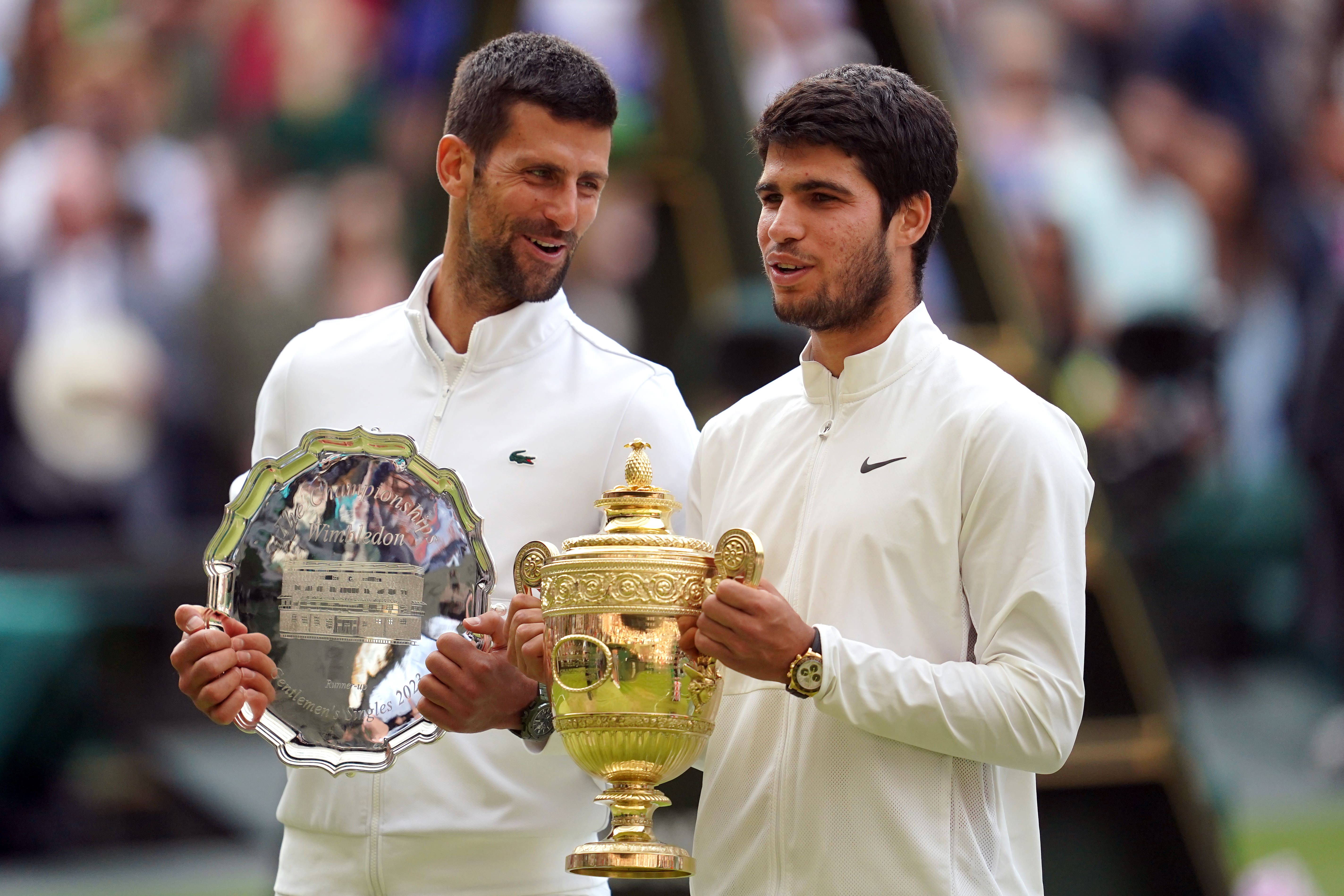Novak Djokovic defeat the biggest surprise in a Wimbledon full of talking points
Djokovic’s long reign as men’s champion came to an end in a stunning five-set final.

Your support helps us to tell the story
From reproductive rights to climate change to Big Tech, The Independent is on the ground when the story is developing. Whether it's investigating the financials of Elon Musk's pro-Trump PAC or producing our latest documentary, 'The A Word', which shines a light on the American women fighting for reproductive rights, we know how important it is to parse out the facts from the messaging.
At such a critical moment in US history, we need reporters on the ground. Your donation allows us to keep sending journalists to speak to both sides of the story.
The Independent is trusted by Americans across the entire political spectrum. And unlike many other quality news outlets, we choose not to lock Americans out of our reporting and analysis with paywalls. We believe quality journalism should be available to everyone, paid for by those who can afford it.
Your support makes all the difference.The Russians returned, a Ukrainian charmed Centre Court, an American punched above his weight, there were protests, curfews, boos and even a spying controversy. But most unusually of all, Novak Djokovic did not win.
He came close, though. Wimbledon 2023 looked set to go the same way as the previous four in the men’s draw, Djokovic bidding to take his number of titles to eight – level with Roger Federer – and his total of grand slam wins to 24 to equal Margaret Court’s all-time record.
But along came Carlos Alcaraz, the swashbuckling 20-year-old bundle of Spanish energy, a smiling assassin, and suddenly the irresistible force had beaten the immovable object.
Djokovic was supposed to stroll to the title, a testament to his enduring greatness, but also a damning indictment of the rest of the field if a 36-year-old can knock them all over with ease.
But Alcaraz struck a blow for the young pretenders with a five-set victory over four-and-three-quarter dramatic hours, in what was only his 18th match on grass.
Alcaraz had earlier in the week shrugged off ‘spygate’ claims that his father had been seen filming Djokovic practising with all his wide-eyed, boyish charm, simply saying: “Oh, probably it is true. My father is a huge fan of tennis.”
The breakout star of the Championships was American Chris Eubanks, who landed some heavyweight shots on his run to the quarter-finals, knocking out British number one Cameron Norrie and fifth seed Stefanos Tsitsipas along the way.
Wild card Liam Broady flew the British flag the furthest in the men’s draw, accounting for fourth seed – and renowned grass-phobe – Casper Ruud before falling to Dennis Shapovalov in round three.
The women’s champion was not so easy to pick, as has been the case for the last few years, and although a ‘big three’ has started to emerge, both world number one Iga Swiatek and defending champion Elena Rybakina exited at the quarter-final stage, and second seed Aryna Sabalenka in the semis.
Unseeded Ukrainian Elina Svitolina became the darling of Centre Court, reaching the semi-finals just nine months after her daughter Skai was born.
Svitolina’s stance in not shaking hands with players from Russia or Belarus, who were banned last year due to the conflict in her homeland, led to fourth-round opponent Victoria Azarenka being booed off Centre Court, with spectators assuming it was her who had snubbed the handshake.
The Wimbledon crowd evidently know more about Pimm’s and strawberries than they do about the world political landscape.
Sabalenka’s loss to Ons Jabeur – and Daniil Medvedev’s defeat by Alcaraz in the men’s semi – did at least spare the All England Club from the awkward optic of the Princess of Wales handing over the trophy to a Belarusian or Russian player.
Svitolina beat Swiatek in the last eight but her run was ended by Czech Marketa Vondrousova, the world number 42, who went on to become the first unseeded woman to win the title after a straight-sets demolition of Jabeur.
British number one Katie Boulter, unfazed by Just Stop Oil’s bizarre orange confetti/jigsaw puzzle interruption – the second such protest on day three – made the third round but was brutally taken down by Rybakina, 6-1 6-1.
The rain, frustratingly a feature throughout the fortnight, meant only an hour’s play was possible on the outside courts on day two, causing a backlog of matches and a headache for the schedulers.
That did not affect the show courts, but Wimbledon’s stubborn insistence that play should not start before 1.30pm on Centre meant too many late finishes and, on two occasions, matches being unable to finish due to the strict 11pm curfew.
Djokovic disposed of Stan Wawrinka with 14 minutes to spare, but not even he could beat Hubert Hurkacz inside their allotted two hours after two lengthy matches beforehand, and the Serbian had to come back in on his day off to finish the job.
The same happened to Andy Murray, the latest leg of his extended farewell tour ending in the second round when he was outlasted over five sets and two days by Tsitsipas.
Djokovic suggested play should start at 12pm, but that is another contest at Wimbledon that he probably will not win.